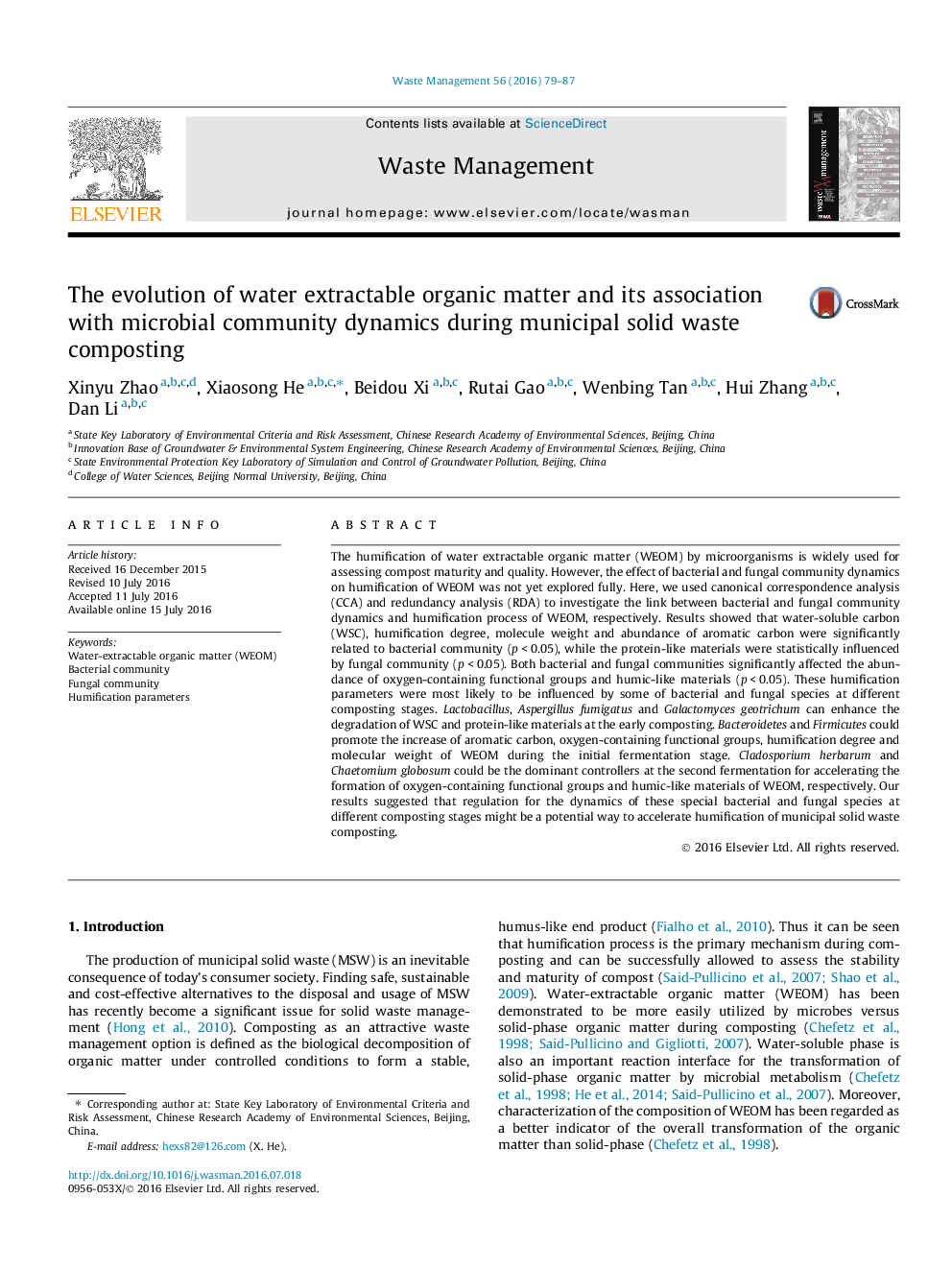| کد مقاله | کد نشریه | سال انتشار | مقاله انگلیسی | نسخه تمام متن |
|---|---|---|---|---|
| 4471115 | 1622630 | 2016 | 9 صفحه PDF | دانلود رایگان |
• The humification process during municipal solid waste composting was analyzed.
• The structure and succession of bacteria and fungi during composting was studied.
• Bacterial and fungal community dynamic is statistically related to functional composting parameters.
The humification of water extractable organic matter (WEOM) by microorganisms is widely used for assessing compost maturity and quality. However, the effect of bacterial and fungal community dynamics on humification of WEOM was not yet explored fully. Here, we used canonical correspondence analysis (CCA) and redundancy analysis (RDA) to investigate the link between bacterial and fungal community dynamics and humification process of WEOM, respectively. Results showed that water-soluble carbon (WSC), humification degree, molecule weight and abundance of aromatic carbon were significantly related to bacterial community (p < 0.05), while the protein-like materials were statistically influenced by fungal community (p < 0.05). Both bacterial and fungal communities significantly affected the abundance of oxygen-containing functional groups and humic-like materials (p < 0.05). These humification parameters were most likely to be influenced by some of bacterial and fungal species at different composting stages. Lactobacillus, Aspergillus fumigatus and Galactomyces geotrichum can enhance the degradation of WSC and protein-like materials at the early composting. Bacteroidetes and Firmicutes could promote the increase of aromatic carbon, oxygen-containing functional groups, humification degree and molecular weight of WEOM during the initial fermentation stage. Cladosporium herbarum and Chaetomium globosum could be the dominant controllers at the second fermentation for accelerating the formation of oxygen-containing functional groups and humic-like materials of WEOM, respectively. Our results suggested that regulation for the dynamics of these special bacterial and fungal species at different composting stages might be a potential way to accelerate humification of municipal solid waste composting.
Journal: Waste Management - Volume 56, October 2016, Pages 79–87
